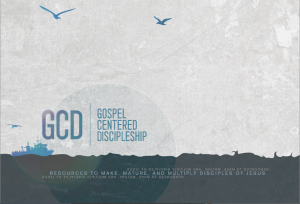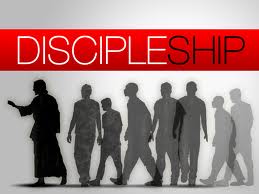 After writing Fight Clubs: Gospel-Centered Discipleship a couple of years ago, the need for reliable gospel-centered resources on all things discipleship became apparent. While making disciples over the past fifteen years, and training many pastors all over the world, I continue to see and hear the need for more Christ-centered wisdom in discipleship. Various questions arise for which there are few gospel-centered answers, at least in writing.
After writing Fight Clubs: Gospel-Centered Discipleship a couple of years ago, the need for reliable gospel-centered resources on all things discipleship became apparent. While making disciples over the past fifteen years, and training many pastors all over the world, I continue to see and hear the need for more Christ-centered wisdom in discipleship. Various questions arise for which there are few gospel-centered answers, at least in writing.
- How do I make disciples in a context where people don’t believe in truth or God?
- When and how should I address ethical issues in discipleship (i.e. greed, racial prejudice, homosexuality, cohabitation).
- How can I make disciples without being programmatic?
- What is the difference between evangelism and discipleship?
- How can the church make disciples that teach everything Christ commanded?
- What does discipleship look like in everyday life?
How Will Gospel Centered Discipleship.com Help You?
Unfortunately, no single book or series of books can sufficiently address all these kinds of questions. Meanwhile, new questions continue to arise from the unique challenges of being a disciple and making disciples in context. The vision of Gospel Centered Discipleship.com (GCD) is to meet many of these needs by making discipleship resources available at one site. The values that shape our resources include:
- Culture-sensitive
- Practitioner-tested
- Gospel-centered
- Community-shaped
- Mission-focused
GCD.com is a long form resource site that will electronically distribute Articles, eBooks, and Curriculum on a host of discipleship issues, all from a gospel or grace centered perspective. Contributions come from a collective of proven gospel-centered practioners addressing a myriad of discipleship issues. It’s been great to see excellent content come in. The site launches Summer 2011.
REGISTER for email updates
FOLLOW us on TWITTER to keep up with progress and get some great discipleship tweets.
More to come…

 When we’re told to make disciples, to share our lives and the gospel with other people, very often objections spring to mind. Here are three possible objections, along with brief responses to why you might not be making disciples.
When we’re told to make disciples, to share our lives and the gospel with other people, very often objections spring to mind. Here are three possible objections, along with brief responses to why you might not be making disciples.
 Joe Thorn was kind enough to
Joe Thorn was kind enough to